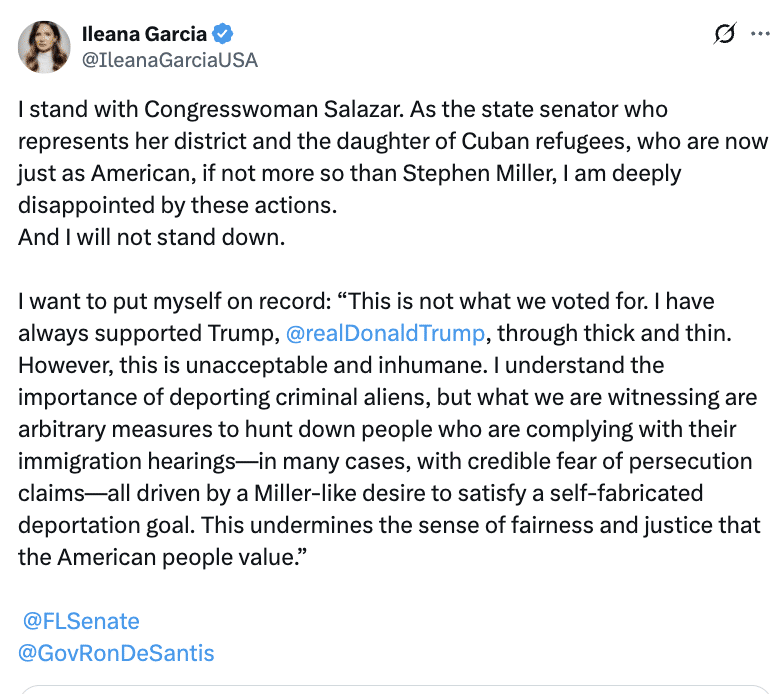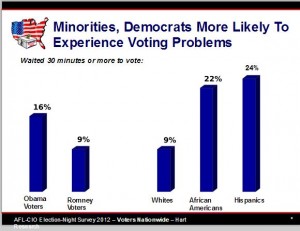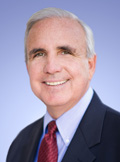No, Trump Voters Did Not Vote for This
A disavowal of Stephen Miller’s immigration crackdown by Ileana Garcia, one of the founders of Latinas for Trump, has generated a lot of attention and some outrage.
Many lefties are criticizing Garcia for perceived denial about who and what she voted for, or for being a dumbass for pretending they didn’t enable this. It’s absolutely true that anyone who voted for Trump voted for the way he deployed bigotry, twice, to win. Garcia owns that.
But she didn’t vote for the specific crackdown that is currently going on. And the distinction matters.
The pushback against Garcia’s comment was largely a response to Miami Herald’s headline. “‘Inhumane:’ Latinas for Trump founder condemns White House immigration crackdown,” or a few paragraphs taken out of context.
Her full statement — as well as that of Congresswoman Maria Elvira Salazar, to which she was responding — is more nuanced than that. Both are complaining about the practice of arresting people as they attend court hearings or routine check-ins as part of adjudication of legal claims. Here’s Garcia’s comment.
[W]hat we are witnessing are arbitrary measures to hunt down people who are complying with their immigration hearings—in many cases, with credible fear of persecution claims.
Salazar explained the point at more length.
Arrests in immigration courts, including people with I-220A and pending asylum cases, the termination of the CHNV program, which has left thousands exposed to deportation, and other similar measures, all jeopardize our duty to due process that every democracy must guarantee.
I remain clear in my position: anyone with a pending asylum case, status-adjustment petition, or similar claim deserves to go through the legal process.
That is, both women (and I presume Mario Díaz-Balart and Carlos Giménez, with whom Salazar says she’ll be meeting with Kristi Noem after several weeks of seeking a meeting) are primarily complaining that, to ratchet up arrests, ICE is arresting people as they arrive for scheduled meetings that are part of their due process to remain in the US.
This is the tactic that lefties have condemned when it happened to people like Mohsen Mahdawi or Carolina or Gladis Yolanda Chavez Pineda or Carol Hui or VML’s mother, every one of them the subject of local or national attention.
You can argue that these Cuban-Americans are mostly pushing to protect their own communities; Salazar specifically mentioned the parole covering Cuban, Haitian, Nicaraguan, and Venezuelan migrants, which Trump recently revoked with SCOTUS approval. You’d be right! Four South Florida politicians are fighting to protect their constituents.
You can argue Garcia should have seen this coming when Trump and JD Vance and Stephen Miller falsely accused Haitian migrants of eating house pets. You’d be right! Of course, that comment targeted Haitians in Ohio, not Cubans in South Florida. Salazar even specifically excluded Haitians from those migrants fleeing the “most brutal regimes in our hemisphere.”
Nevertheless, Trump’s promise to deport millions was premised on deporting immigrants with no legal basis to be in the US, not those who are abiding by a legal process to stay (of which Florida must have a disproportionate number).
No person voted for that because that’s not what Trump ran on (though Miller and JD did call the Haitians illegal, which should have been the tip-off).
And even if Garcia and Salazar were making a more general comment — that Stephen Miller’s focus on longterm migrants, rather than just criminal aliens (both women use somewhat ambiguous language here, with Garcia using the term “criminal aliens” and Salazar referring to “criminal[s] here illegally”) — they’d have some basis for their argument.
I contemplated reposting this entire post, from Day 8 of Trump 2.0, to address this issue. But the record shows that:
- During a key part of the campaign, Trump, Miller, and Republican members of Congress claimed there were hundreds of thousands of aliens known to have committed a crime wandering the streets; it was based on a misrepresentation of DHS’s tracker of aliens anywhere in the US, the vast majority of whom are in prison either awaiting trial or serving a sentence. Those were the people Trump promised to deport; he just lied about how many of them there were.
- Miller built another part of his campaign on a lie about Tren de Aragua, and when the Intelligence Community debunked that lie both before and after he relied on it in an attempt to bypass due process, he lied some more. Those were the Venezuelan criminals Miller made up who would be covered by the CHNV parole cited by Salazar.
- Within a week of inauguration, as experts began to predict the inevitable outcome of Miller’s ICE quotas (then half of what he has since ratcheted them up to) — that ICE would focus on easy targets who were not known criminals rather than hunting down the far rarer criminal alien Miller lied about during the campaign — Miller started redefining the term “criminal alien” to encompass the easier, peaceful targets his quotas would inevitably target. CATO (currently one of Miller’s favorite targets) reported that this focus on numbers rather than criminals would have the effect of drawing law enforcement away from the most dangerous people.
Those are the people — long-term US residents not known to have violated any law — whom Miller has redefined into the criminal aliens about which he lied during the campaign.
You can absolutely hold politicians like Garcia and Salazar responsible for helping to elect Trump, for enabling his grotesque assault on migrants who don’t happen to be Cuban.
But it is nevertheless the case that Miller got Trump elected promising to round up a bunch of people he portrayed as violent criminals, and has since redefined the term “criminal alien” to justify going after people in the US even if they are pursuing a legal claim of asylum.
Garcia and Salazar let themselves buy into a lie, but it was a lie. A series of lies. All designed to move the goalposts to encompass people that South Florida politicians rightly treat as part of their community.
And even if you think Garcia and Salazar let themselves buy into the bigotry, for the moment, who cares? You’ve got powerful Republicans calling out Trump’s lies, with Garcia targeting Stephen Miller and his quotas by name.
One of the most important things that we could achieve, in the short term, to discredit Trump’s ICE crackdown (and with it, Trump’s military invasion of Los Angeles) is to point out that Trump didn’t run on deporting people who were pursuing legal status in the US, and he strongly implied that his promise of mass deportations was a promise to deport actual criminals (about the numbers of which Trump and Miller lied), not long-term US residents who had put down roots. One of the most important things we need the public to understand is that the events in Los Angeles were incited by Miller’s impossible quotas for arrests, 3,000 a day, quotas that from the start were guaranteed to shift ICE’s focus away from dangerous people and onto mothers working at the local waffle restaurant. Even if the only thing such pushback achieves is to end the practice of arresting people when they show up for scheduled check-ins, it would do a lot to keep families together, it eliminate one of the most egregious practices.
Prominent Republicans want to — correctly — blame Stephen Miller for the chaos that has erupted.
Don’t get in their way! At this point, any pushback on Miller’s gulag, any focus on him and his lies, is welcome.
We will not make it through this unless we exploit every single break that Republicans make with Trump. We will not make it through this unless we convince a significant number of Trump voters to push back or better yet disavow their vote.
Only if we do make it through this do we have time for recriminations against the people who allowed themselves to believe a lie.




